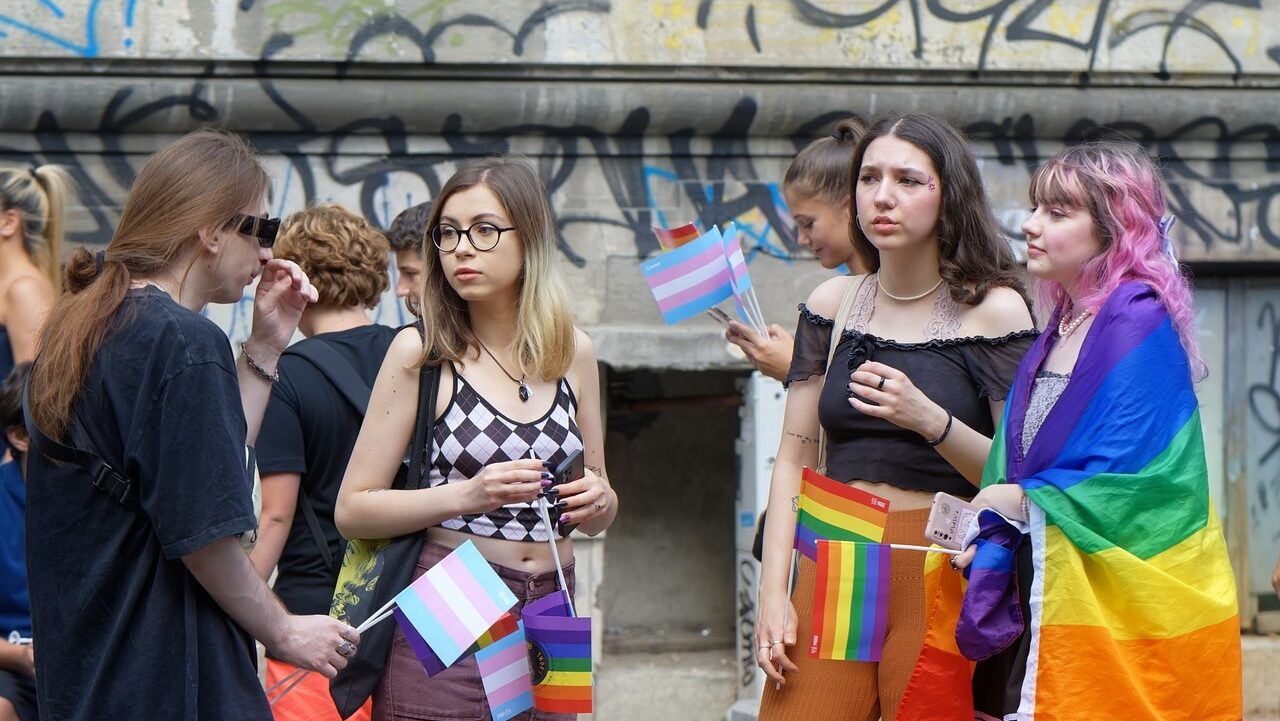‘The country of Georgia is not a safe place for LGBTQI+ people’
"Home Office policy is denying LGBTQIs the right to seek sanctuary despite increasingly hostile anti-LGBT legislation," writes Rainbow Migration's Minesh Parekh in an op-ed

Last month the Georgian government introduced repressive new laws to restrict the rights of LGBTQI+ people, including a ban on same-sex marriage, gender-affirming care, and on sharing information that could be perceived as ‘LGBTQI+ propaganda’ in schools and the media.
With parliamentary elections coming later this week, this was the ruling Georgian Dream party’s election pitch to conservative-minded voters – and LGBTQI+ activists in Georgia fear further crackdowns from the government if they are re-elected.
This is why it is worrying that the UK government maintains a ban on asylum claims for people fleeing persecution in Georgia, as well as other countries unsafe for LGBTQI+ people like India and Albania.
Earlier this year, the previous government added Georgia and India to its list of ‘safe’ states, deeming asylum claims inadmissible without any individual assessment of a person’s safety
At the same time that the US has imposed sanctions and travel bans on senior figures in the Georgian government for undermining democracy, and the British Embassy in Georgia has criticised Georgia for undermining “fundamental human rights”, the UK Home Office’s formal position still remains that the country is safe for LGBTQI+ people.
We are thankfully seeing some movement from the new government on this, but we urge Ministers to act more quickly and prevent needless risk to life.
Earlier this week, Nottingham MP Nadia Whittome questioned the Home Office over the blanket ban on asylum claims from people in Georgia and India. Whittome highlighted that the ‘safe’ state designation the previous government introduced for India and Georgia allows for people seeking asylum from those countries to be removed without any assessment of their safety – despite the fact that persecution of minority communities is on the rise in both countries.
In response, Home Office minister Angela Eagle said that she shared concerns about Georgia’s ‘troubling’ new laws, and that if she deems the new legislation to “affect the justification for Georgia’s designation then [she] will seek to remove it”. She later stated that “if laws are passed and put into effect in other countries [that] lead to persecution or a well-founded fear of persecution” that will be considered when deciding to revoke a country’s ‘safe’ designation.
This commitment to reconsider a country’s safety in light of new evidence is welcome – the new government should be signalling to the world that it will not tolerate anti-LGBT hate and make that a focal point of its relationships with other countries.
What is worrying, however, is how much evidence has been overlooked by both the previous and current UK governments in maintaining Georgia’s ‘safe’ status. This new wave of repressive legislation was sadly not the first rollback of LGBTQI+ rights in Georgia, only adding to the already existing evidence that Georgia was not a safe country for LGBTQI+ people.
The US State Department in 2022 identified “significant human rights issues”, including violence and threats of violence targeting LGBTIQ+ people, and its 2023 Country Report on Human Rights Practices: Georgia identified “violence and harassment by state […] actors against LGBTQI+ persons and those reporting such abuse”.
When the ‘safe states’ legislation was first considered, Rainbow Migration worked with the Immigration Law Practitioners’ Association to highlight how inappropriate and ill-prepared the legislation was. When debated by Parliament, Lords questioned Ministers over how either Georgia or India could be considered safe for minorities as they could not find evidence that they “are countries that have and uphold international standards of human rights for the vast majority of their citizens”.
Angela Eagle is right to say that countries should not be considered safe if LGBTQI+ people or other minority communities are persecuted in those countries – but there is overwhelming evidence for both Georgia and India for this to be the case.
With Asylos, we recently published analysis which identified omissions and inconsistencies with the Home Office’s Country Policy and Information Note on Georgia, raising cause need for the Home Office to refresh its evidence base.
The Home Office has been out of step with the UK Foreign Office on this issue, which has expressed serious concern about the safety of LGBTQI+ people in Georgia. Foreign Office Minister Stephen Doughty said that the laws passed by the Georgian government “undermine fundamental rights of freedom of expression and assembly, and risk discriminating against and stigmatising Georgia’s LGBT+ groups”, and that he had raised concerns with the Georgian Foreign Minister to emphasise “the importance of protecting minority rights”. The British Embassy in Georgia has gone further still, telling the Georgian government that its anti-LGBT legislation “calls into question the long-standing relations between Britain and Georgia“.
Local campaigners, charities, politicians, and the Foreign Office have all highlighted how unsafe Georgia is for LGBTQI+ people. Its recent legislation makes the situation on the ground even more precarious, and adds to the urgent need for the UK government to reconsider Georgia’s ‘safe’ designation.
The situation of Georgia makes clear why blanket bans on asylum claims from entire countries are fundamentally flawed. Georgia is becoming increasing hostile and dangerous for LGBTQI+ people, and yet our government is denying people – by policy – the right to seek sanctuary
Asylum claims should be decided on a case-by-case basis according to the risk of harm to an individual. Blanket bans undermine that and can put us in the untenable position where the UK government – by considering them “safe” – implicitly endorses anti-LGBTQI+ regimes.
We urge the new UK government to show solidarity with LGBTQI+ Georgians. It must reconsider ‘safe’ state designations, and ensure that people fleeing Georgia, India, Albania, and other countries unsafe for LGBTQI+ people are able to receive sanctuary in the UK.
Minesh Parekh is the Policy and Public Affairs Manager at Rainbow Migration.
